The founders of Asian Womxn in the Arts (AWA) spoke to us about their journeys and challenges
Back in March, I attended a happy hour for Asian Womxn in the Arts (AWA) and was left pretty speechless. I realized I had never been in a room with so many powerhouse creative womxn who looked like me, related to challenges I’ve faced, and were willing to share their stories of triumph and failure. There were Asian immigrants, first-gen, and third culture kids, all working hard on their respective crafts as they blazed their own trails.
As a third culture kid with immigrant parents, I’ve had my own struggles going after a nontraditional career. It’s been difficult to find other Asian womxn with similar paths and to realize that I’m not alone. Luckily, my parents have been supportive of my journey, even though they worry (a lot) about how they don’t know exactly where I’m going or where I’ll end up.
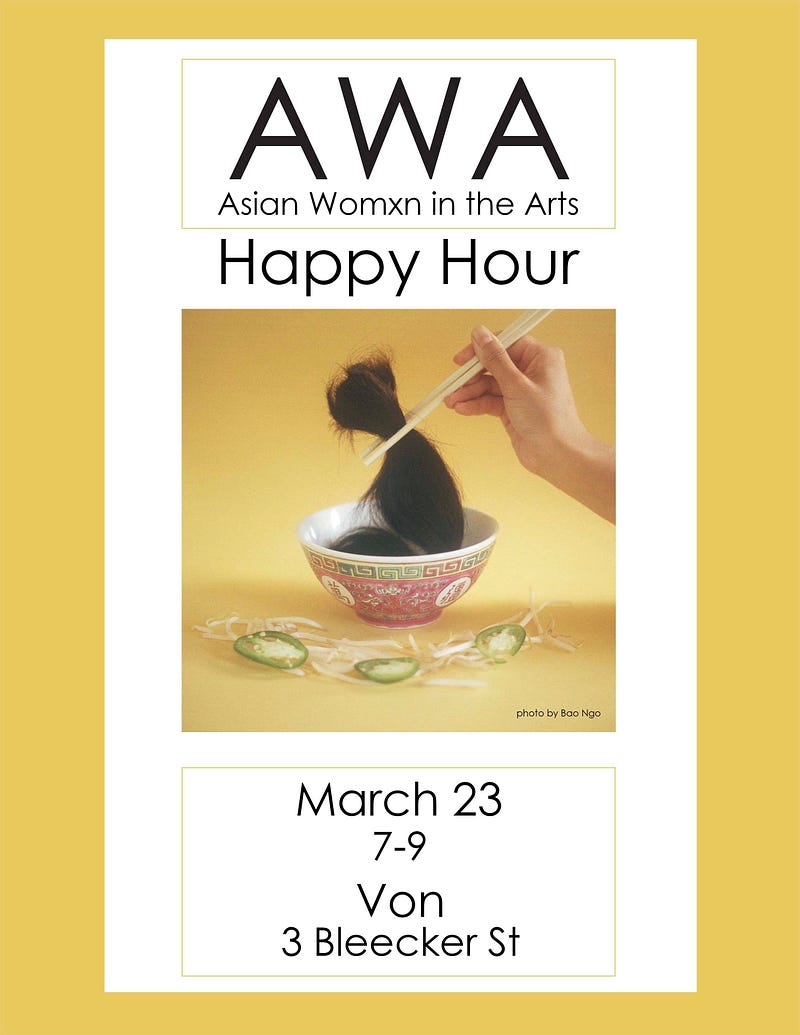
During the AWA happy hour, creatives from all sorts of industries learned about one another’s projects, asking how they could support each other and how they could collaborate. For a launch event designed to just gauge interest, it was clear that the founders of AWA had tapped into something that people were searching for: a supportive community of Asian womxn creatives.
Reflecting on how AWA formed, founders Britt Pham, Prisca Choe, and Zorinah Juan each spoke of how their family, friends, and mentors shaped who they are today, and led them to launching this incredible community in NYC.
Sparking collaboration
Britt Pham and Prisca Choe first met in 2015 on the set of an experimental music video/short film shoot. The duo came up with the idea for AWA in December of that year, but they were both still in school at the time and weren’t able to devote the time and energy they felt would be necessary to build the community. Fast forward to January 2018, when Britt and Prisca asked Zorinah Juan to join as a co-founder and board member. In their words, “Zorinah lives out the mission of AWA in all aspects of her life, and we really admire and respect her dedication to diverse storytelling. As a director, she always creates opportunities for inclusive cast and crew on all her projects.”

According to Britt and Prisca, one challenge of putting AWA together was fighting the mentality that “Asia” means “Far East Asia.” They strove to be inclusive, educating themselves on the vastness of Asian cultures and building resources for others. They learned to accept that they would make mistakes and would have to learn on the go. For Britt, “The main challenge [in launching AWA] was overcoming that ingrained reticence to ‘fail,’ and learning that it’s far more important to listen and build conversations in community.”
NYC is bursting with culture and history, so it was the ideal place for the AWA community. Prisca loves how in NYC people can reinvent themselves every day and never truly trapped: “You have the opportunity to be a new person everyday, and that drives you to be a better person every day. Each day you can leave something behind and be better.” Britt feels that NYC is community oriented, diverse, and inclusive — “everyone is a weirdo, in the best possible way! It’s the best environment to create the coolest things and everyone here is encouraged to be creative and make their own path.”
Zorinah explains her thoughts: “There is just such an energy about this place…about the way people interact here that’s not like any other place in the world. You can make a connection and in 10 minutes you can become lifelong friends. There’s something here that breeds a certain kind of humanity; [NYC] is an epicenter of culture, diversity, language, and art.”
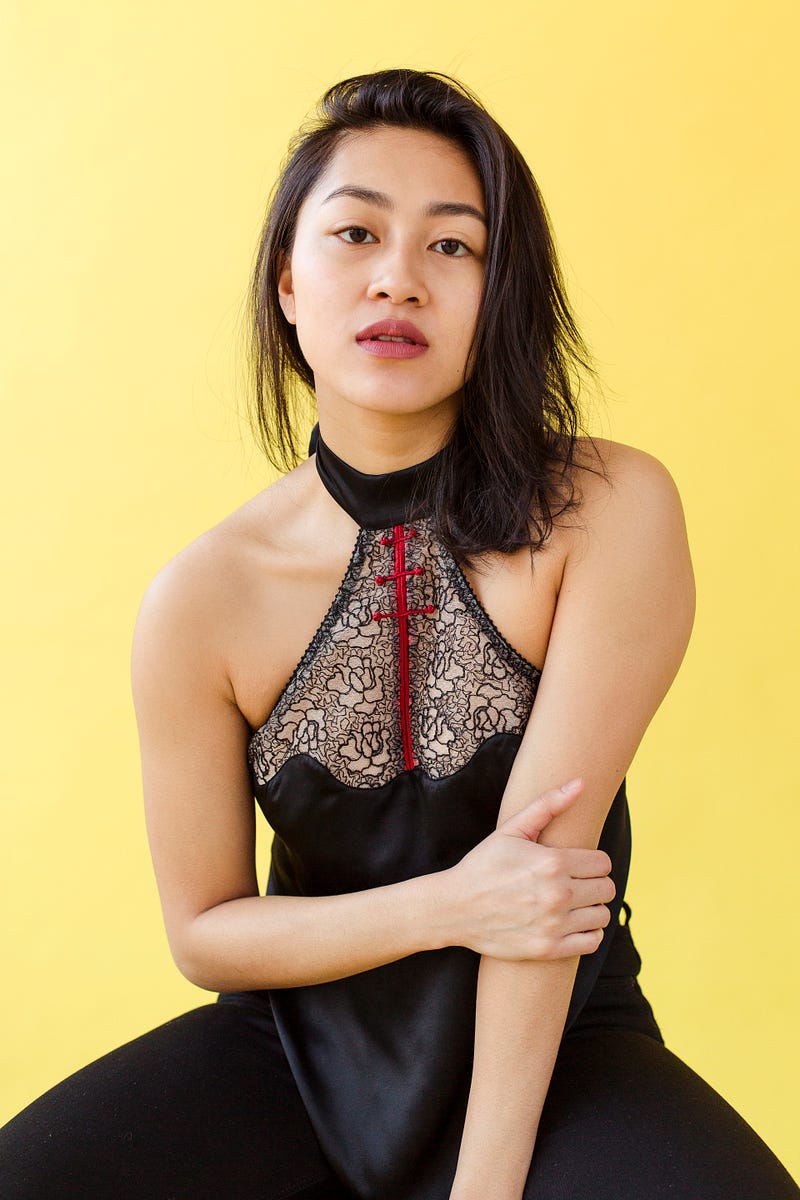
Reflecting on family roots
*BRITT PHAM — *Britt was raised in Salt Lake City, which she quips is “a weird place to grow up when you’re not religious or white.” She was always a creative kid who was heavily involved in theater. However, Britt says that “It was always in the back of my head when I auditioned for school plays that I would probably not get cast in lead roles. I knew I would probably get more of a supporting role that needed to be played by a person of color.” It wasn’t until Britt was applying to colleges that she really began to pursue a creative career path.
After being accepted into NYU Tisch’s Clive Davis Institute of Recorded Music in 2013, Britt had every intention of becoming a musician. Halfway through her program, she realized she didn’t love being a performer and was feeling anxious about being on stage. She recalled being on the phone with her mom and venting about school and work. Her mom’s response was “Well, it’s hard because you’re Asian.” While coming to terms with how she felt about being in the spotlight, Britt also realized she didn’t look like most other successful musicians in the mainstream. According to Britt, it was “a real wake up call” to realize the career she was working towards might not be for her. Though it was a discouraging moment, it helped Britt recognize her other passions, which included event production.
Britt grew up feeling a little disconnected to her Vietnamese and Lao heritage since her parents didn’t speak Vietnamese to her when she was growing up. While there were ten other Asian kids at her school (collectively called “The Asians”) who all hung out together, she didn’t feel like she had anything in common with them. Britt was the only one heavily involved in theater and didn’t feel quite connected to her roots since there was little mention of them at home. Britt reflects, “I really resented [my parents at the time] because I felt so disconnected to their culture and also to the school and neighborhood I grew up in.” When she eventually moved to New York, she finally realized how out of place she had felt growing up.
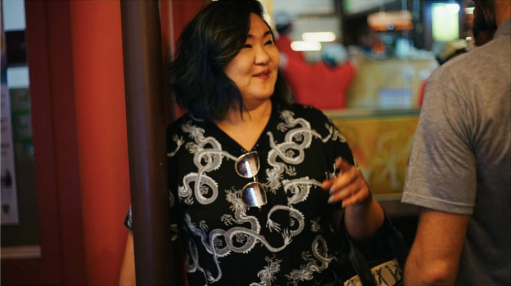
*PRISCA CHOE — *Prisca grew up in Philly. Her parents started a non-profit focused on educating Korean adoptees and their families about Korean culture. However, when she was in college, she struggled to talk openly to her parents about how she was creating art and pursuing a creative career, fearful that they would not be supportive of something that meant so much to her. Prisca moved into the living room of a friend’s apartment, thinking to herself “If I get disowned, I could live here.”
“Creative work always felt like an emotional release and is tied to my mental health and well-being,” Prisca shares. In her experience, “Asian communities aren’t usually supportive of creative careers and they are often resistant to addressing mental health issues.” Prisca feels lucky to now receive support from her family on both fronts, though she acknowledges it took many years of open communication to make sure her family understood the challenges she faces. Prisca used to avoid talking about the difficulties she was facing as both an Asian and a creative. She says it was “often taxing to explain the complexities of the overlap,” until AWA formed and she was able to connect with other Asians who had similar experiences.
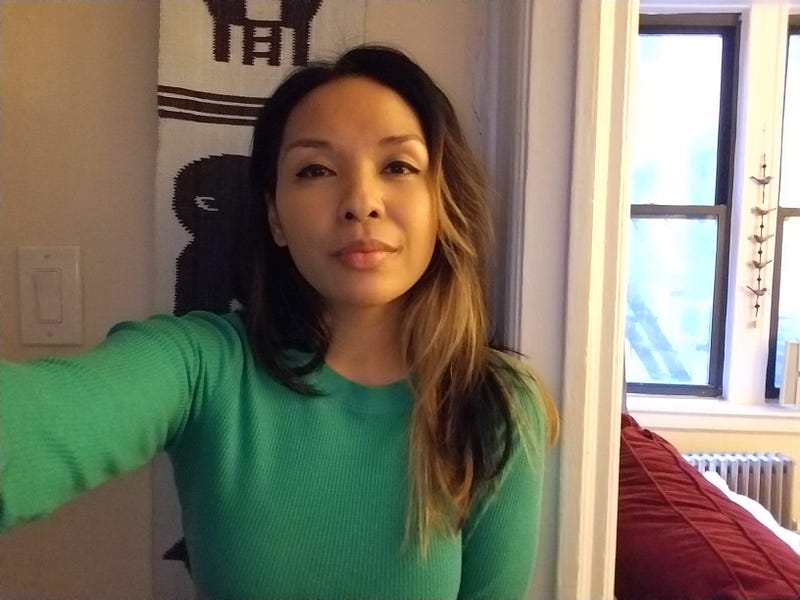
*ZORINAH JUAN — *Zorinah grew up in New Jersey. Her parents were both Filipino immigrants and she recalled that when she first started going to school, her family was one of two Filipino-American families in her town. Zorinah shares, “As I got older, the town became more diverse. And now, funnily enough, the town is probably half Filipino.”
Zorinah works in film and television as a director. Her parents were supportive of this dream and never told her “You should do this or you should do that” because that was the way they were raised. Zorinah recalls her mother insisting that she could do whatever she wanted. She applied to film school without any hesitation from her family (“My folks are so badass!”) and earned a degree in film production and creative writing.
Moments of triumph and failure
As each AWA founder can confirm, success doesn’t happen instantly and there are a lot of challenges and failures that serve as learning experiences along the way. With a community of family, friends, and mentors behind you, there are people there to kick open doors you didn’t know existed, cheer you on, and help you get back up when you fall.
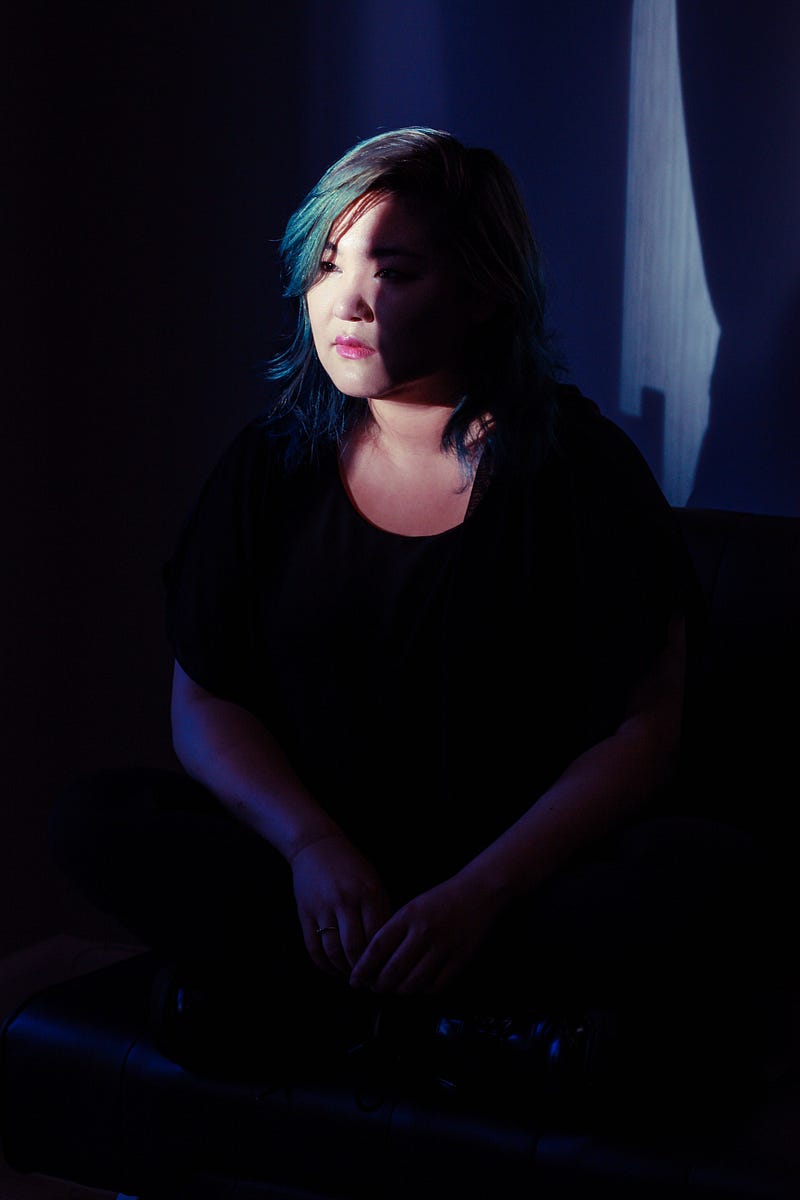
Prisca now accepts that there are moments of failure she can’t really control. She recalls a time when she was in a darker place and wasn’t advocating for herself, especially when it came to work. She felt taken advantage of and was learning how to stand her ground and say “No.” Prisca recognizes she wasn’t prioritizing herself or the people who cared about her at the time. “While trying to collaborate with people, I couldn’t truly commit to anything. I didn’t think I was a good enough partner.” Nowadays, Prisca only takes on projects she really cares about. Her approach to building communities like AWA is centered around holding space for people — she feels that as long as she’s made a difference to at least one other person, she’s made a difference.
Britt feels that triumphs and failures come in cycles. At NYU she realized she was constantly comparing herself to other students; it was the first time she didn’t know where she was going or what she wanted to do. She eventually succeeded in pivoting to become a full-fledged event producer. Britt shared, “I loved living in my own little world — it was never enough for me to just read *Harry Potter; *I would pretend to be a wizard for extended periods of time. Now, I work in experiential and create worlds for people and it’s amazing.”
Zorinah agreed that failure comes in waves, especially when you’re a woman and person of color. She says, “One of the greatest lessons I learned working in film and television for over a decade is: Even if it feels like failure, it doesn’t mean it has to be failure.” Zorinah shares that when faced with a challenge, “I ask myself, ‘So what are you going to do about it?’ and then I usually find the strength and creativity to get through each failure.”
The impact of AWA
Delving into what each AWA founder hopes will happen for the community as it grows in NYC and beyond, all three ladies had great thoughts to share.
Prisca wants to create a community with AWA that exudes warmth. Prisca says that with AWA, “We’re really trying to raise each other up by sharing the work we do, unite, and explore aspects of our Asian identities — including the challenges we face as Asian womxn.” She feels strongly that it’s important for Asian womxn to recognize that they are not alone and to support each other’s creative pursuits. It’s not about competition or getting ahead — AWA aims to build community and communication channels at the heart of what they do.
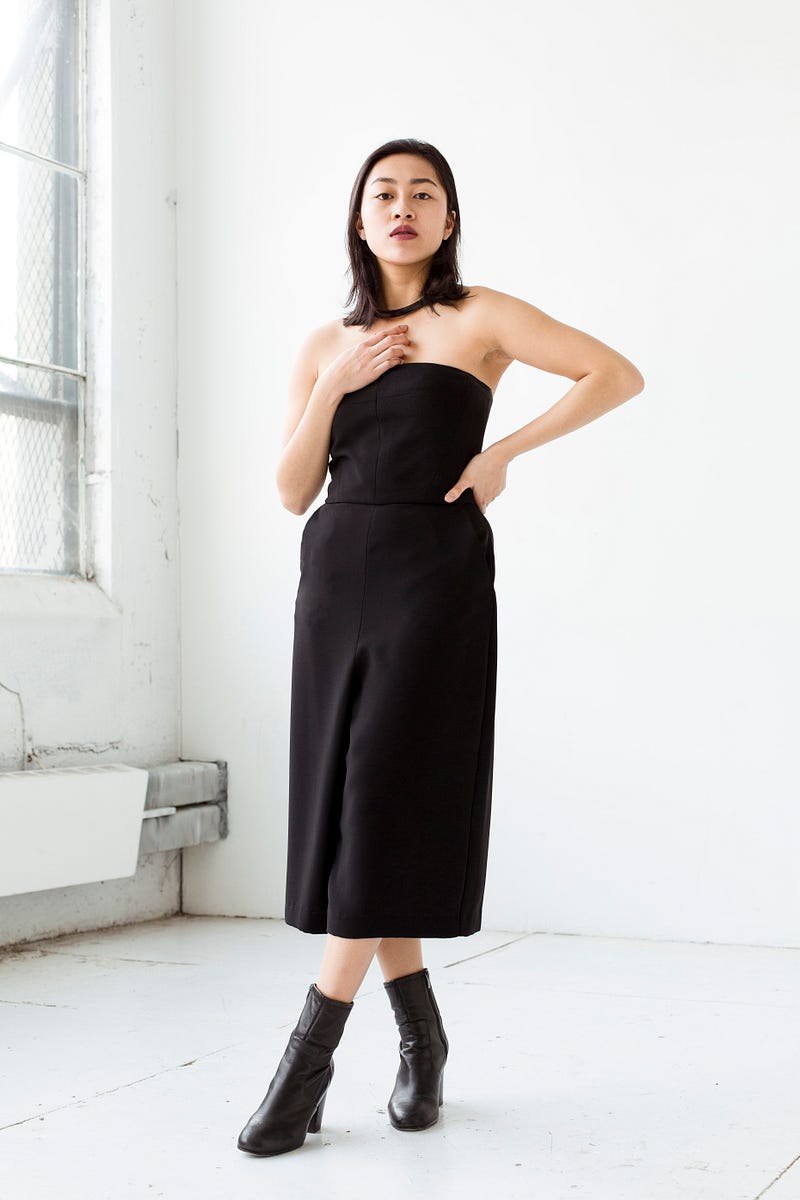
Like Prisca, Britt also wants to ensure that AWA makes people feel less alone in the world. She went into entertainment because she’s a big believer in how the arts can reach people and have a positive impact. Additionally, Britt shares how AWA aims to “empower anyone, regardless of their identity, and ensure they have the tools to be the best they can be.” She acknowledges that not everyone has the resources to fully discover their potential, and AWA aims to help create a more even playing field.
Echoing Britt and Prisca’s sentiments, Zorinah adds on that “For me, it’s increasing the visibility of the people I’ve grown up around, like my parents, brothers, and friends. It’s being able to say that our voices count too.” Zorinah recognizes that there’s a huge part of America that isn’t represented in the media. Zorinah’s focus with AWA is to “uplift other Asian sisters across the globe and in the US, allowing their voices to be heard so they know they’re not only part of the American fabric, but the global fabric.”
All three AWA founders aim to elevate fellow Asian womxn. They each touched upon how womxn are conditioned to compete against each other — and that as people of color, Asian womxn don’t get offered opportunities in certain industries and have fewer role models that have broken the mold. Zorinah shared “Maybe there’s this sense of competition because there are only oh so many spots at the table” while Prisca was quick to chime in, “And they’re not even good spots!”
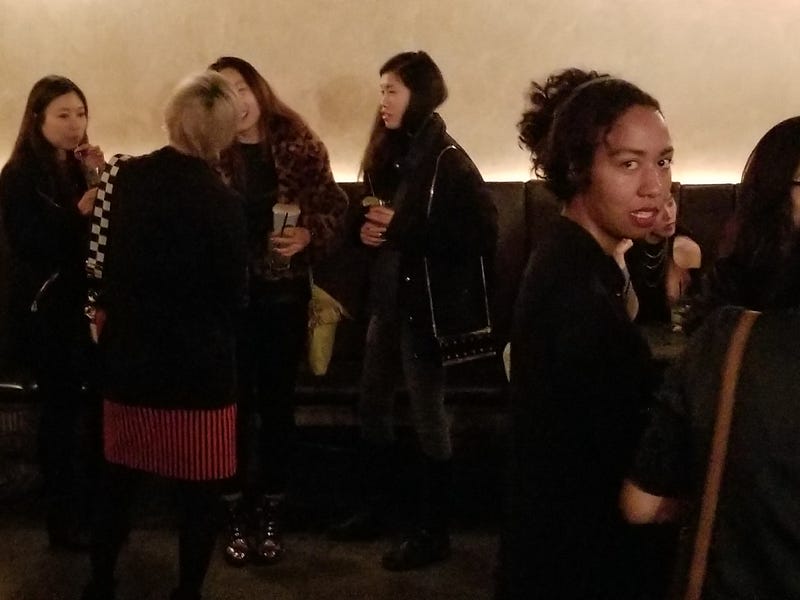
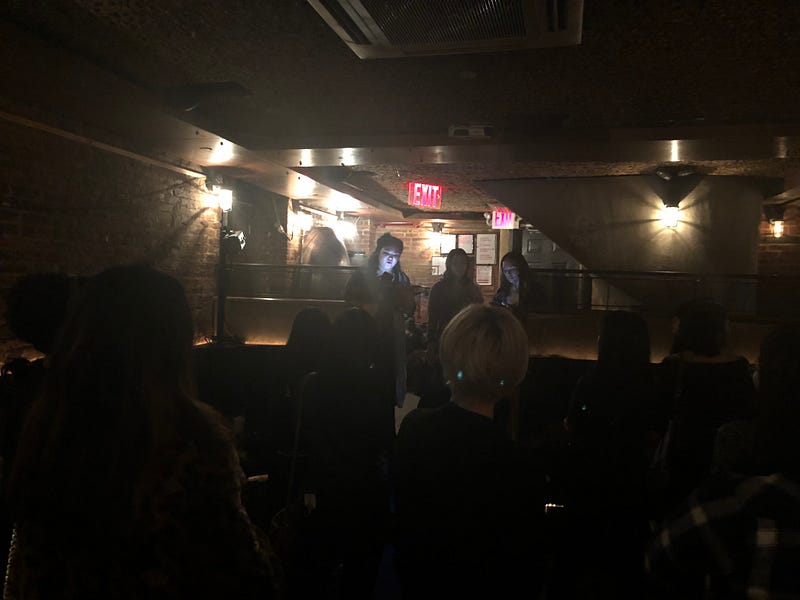
The importance of Asian womxn role models
The founders acknowledge the important role their families, friends, and mentors have played in shaping them and leading them to each other. Each expresses immense gratitude for the following Asian womxn in their lives:
Prisca — “My mom came to the US in middle school by herself, but my grandma raised her as a single mom. At the time, it wasn’t great to be a widow, because you didn’t have the support of either your family or your husband’s family. My grandma started an import/export business as a single mom and really made a great life for my mom and our family. There were also several art teachers I had that were Asian womxn, like my jewelry making teacher, all of whom reassured me there was a path forward. If she could get into a creative field, then I could be there too. I also absolutely adore and look up to Christine Sun Kim, a deaf sound artist who is my idol and gave an amazing TEDTalk.”
Britt — “My mom: she’s my best friend and she’s the most amazing person ever. She’s been through so much and has done everything and continues to do everything. There’s also the AWA team, comedian Ali Wong (she’s basically my mom as well), and honestly everyone I met at AWA’s first happy hour. I’ve met so many incredible Asian creative womxn since I moved here — it’s been incredible to know I’m not alone…I’m buzzing with energy and thriving.”
Zorinah —“I’m with Britt. Strong ladies right here in AWA, which is so inspirational. Of course Mama Juan. You know, I got really lucky. I grew up and became friends with so many incredible Asian womxn and I am inspired by all of them.”
Appreciation for other MVPs and supporters
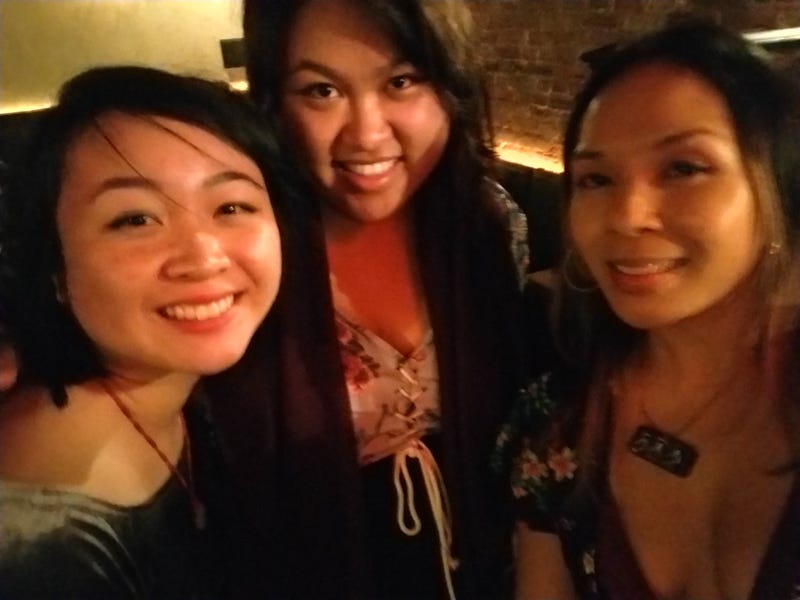
Beyond those superwomxn, the AWA founders are grateful for their allies, mentors, and artists they admire, Asian and non-Asian alike.
Prisca — “My dad is also my everything. He worked to go above and beyond to set me up to succeed. His mentality is always about service to other people. He built so much for other people and that mentality is definitely instilled in me. If you do something, it should help somebody else. Also, my godmother — a tiny Jewish powerhouse — is supportive of everything I do, even when I clearly did not know what was going on and was putzing around trying things. She really taught me the power of a woman. And lastly, the head of my school was the most amazing person who really embodied the Quaker tenets of peace and quality. He taught me the power in being quiet. That there is peacefulness in it. He never yelled, and you could barely hear him when he was talking, but he was so incredible. Sometimes being quiet is equated with weakness and he taught me that’s just not true. There’s a lot of power in holding your words and choosing which ones to release into the world.”
Britt —“I trained in karate for fourteen years. I started training with my sensei when I was six years old. He had just come from Romania and used to train the Romanian army and he scared me; I was a tiny girl and a teacher’s pet but we warmed up to each other and he was like a second father figure for me. Just like no nonsense, no bullsh-t. Karate shaped a lot of what I am. It’s not just your body and your mind, it’s your practices and your habits; I hold them with me today. My whole Dojo family was such a community, it didn’t matter who you were in the regular world. It only mattered who you were in the dojo and how hard you worked. My other mentor was my first boss out of college. He’s an amazing person: he got a journalism degree at Columbia and he is such a fighter for marginalized identities. He gave me my first huge opportunity to work on a TV show and he never treated me anything less than an equal. Shout out to the men who are our allies!”
Zorinah — “I had a teacher in high school who taught video, Mr. Bogusat. I took his class because I wanted to learn filmmaking and I didn’t realize until I got to college that he taught us like a film professor would’ve. I didn’t appreciate the kind of sacrifices he made: I remember being in those editing rooms until 8.00PM and though he had a family to go home to, he made the choice to stay late. I would not be a filmmaker now if it weren’t for him. When people say as a teacher you can really influence someone’s life, I can’t help but think how true that statement is. I think about him whenever something good happens to me in my career, about how I probably wouldn’t have had my opportunities without him.”
Being the person you needed when you were younger
As we concluded our interview, I asked the AWA team what advice they would give to their 13-year-old selves. Their answers are exactly what I would want to pass on to my family and friends:
Prisca — “You’re allowed to take time, and if your priorities are different than the ones given to you, keep going. I was 100% not into the things I had to learn in school or at work, but I had a lot of hobbies — I learned how to crochet and make things because I was feeling super restless. Even though I was being told it’s a waste of time and money. But all of that was necessary because I make props and stuff like that now. I couldn’t make entire sculptures out of plastic sheeting if I wasn’t crafting as a little kid. All that “wasted time” was me learning new skills and learning how to work with different materials so that I could work with Zorinah and Britt on projects like AWA and physically create things with my hands.”
Britt — “The three biggest things are 1) Don’t care too much about what anyone thinks, 2) Don’t focus so much on boys and dating, and 3) Don’t be afraid of failure. I was always insecure about being loud and obsessive about things and people would make fun of me all the time, down to like the hair on my face. Now I’m like — I don’t have time to wax my upper lip — deal with it! [laughter] The boys thing is still a work in progress [laugher continues] I’m trying to commit to myself a little more. Lastly, I know I still have a lot more failures to go and that really terrifies me. Failure is a hard thing for me to swallow, but I’ve really turned that into ways of learning. I try to look at them as steps forward that just hurt a little bit more.”
Zorinah —“I want to echo everything Britt and Prisca said about taking time for yourself. My niece is turning 13 this year and I think about things I would like to impart on her. The biggest thing I’d like to say is ‘You’re enough.’ I think a lot of young womxn think they’re not pretty enough, or smart enough, just not enough. But everything you need to succeed and need to be happy is inside of you. You are 100% enough. That’s really the truth. Know that you have the capabilities to create your own happiness and self worth and you don’t have to look toward external forces to get those things. That’s something I hope my niece learns, knows, and carries with her in life, as well as every other 13 year old girl.”
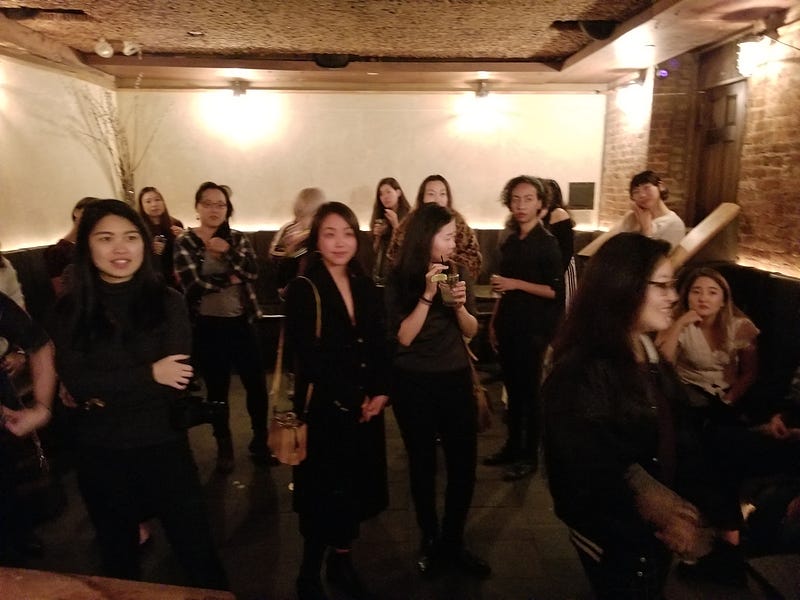
Looking to the future
Since the March happy hour, AWA has hosted a Storytelling Circle, gathering people to speak about themes like “polite fights” and “the sex talk,” and has put out a call for original writing, art, and music to curate a showcase centered around the theme “home.”
Per Britt, Prisca, and Zorinah, “AWA is living and expanding as an online platform (where people can use the internet to connect quickly and in ways that you can’t IRL), cultural programs (IRL get togethers), and resources (accessible tools to help us grow). In the end though, much of how it grows and evolves will be shaped by the community itself.”
You can connect with AWA on Facebook and Instagram for upcoming events! All three badass ladies are also working on various other projects, so check out what they’re up to on the day to day on their personal Instagrams: @britt_pham, @priscachoe, and @zorinahjuan.
Let us know what you think of Nooklyn Stories by tweeting us @nooklyn, reaching out on Facebook, or finding us on Instagram @nooklyn.stories!
Photos:
1. Cover photo: Asian Womxn in the Arts April 2018 Storytelling Circle
2. The poster for Asian Womxn in the Arts’s first event
3. AWA Founders (L-R) Zorinah Juan, Prisca Choe, and Britt Pham
4. AWA Co-Founder Britt Pham // Photo by Elena Mudd | @elenamudd
5. AWA Co-Founder Prisca Choe
6. AWA Co-Founder Zorinah Juan
7. AWA Co-Founder Prisca Choe
8. AWA Co-Founder Britt Pham // Photo by Elena Mudd | @elenamudd
9-10. Asian Womxn in the Arts March 2018 happy hour // Photos courtesy of Amanda Espiritu | @mandaspiri2
11. Photo courtesy of Amanda Espiritu | @mandaspiri2
12. Asian Womxn in the Arts March 2018 happy hour // Photo courtesy of Amanda Espiritu | @mandaspiri2
All photos provided by subjects unless otherwise noted.